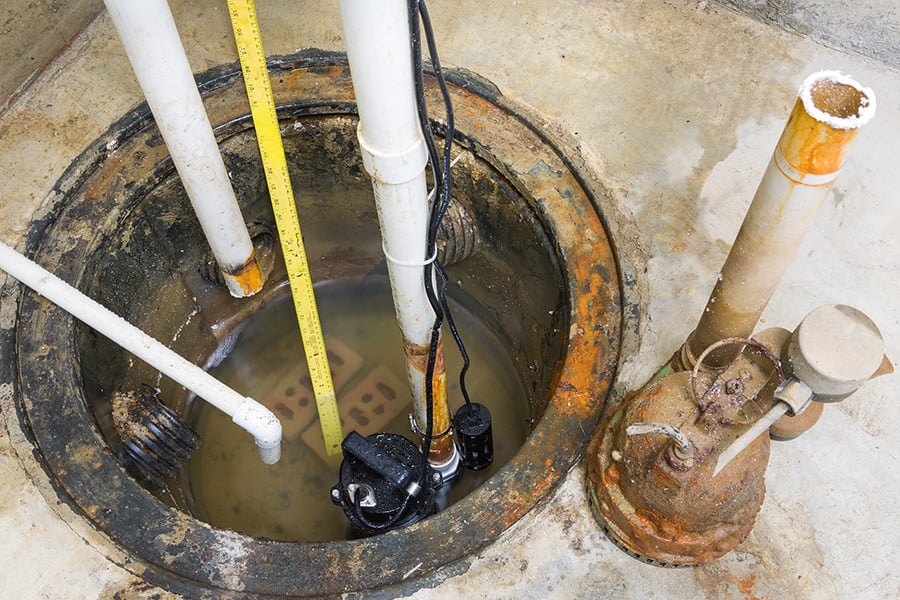Should I Leave My Sump Pump on All the Time?

Sump pumps are designed to extract water from the lower parts of your home and prevent flooding. Triggered by a float switch in its pit, they direct excess liquid toward either sewers or dry wells, depending on local regulations for disposal.
Motor design dictates how long a pump can operate. However, if left running during stormy conditions or an outage, it could pose problems.
Understanding your sump pump’s operation is crucial, and for expert guidance on maintaining and servicing these systems, check out the following link for professional sump pump services.
During heavy rain
Under heavy rainfall conditions, your sump pump may need to run to keep pace with water accumulation and prevent basement flooding or groundwater from rising to dangerous levels. While this is generally beneficial if your sump pump remains operational after the rain has stopped falling, it could indicate something is amiss – be wary if this persists even when no rain falls!
This can be caused by several issues, such as clogging on the discharge line and frozen pipes. Too often, sump pump discharge lines are placed in areas clogged with gunk and debris or are blocked by grass and leaves obstructing their flow.
In this instance, it should be relocated to allow proper operation or covered to help protect it from freezing temperatures. Insulation around this line could also help.
Another possible cause for your sump pump to run could be its low operational capacity, such as being too small or having an easily fixable clog in its discharge pipe. Loud and continuous noise from it may also indicate its need to be replaced.
Professional maintenance checks on sump pumps can provide insight into the cause of any issues.
During a power outage
One of the primary reasons that sump pumps fail to function is due to lack of power. Ensure its cord is connected to an outlet and the fuse or circuit breaker has not been compromised. Alternatively, your sump pump may simply be overworking itself due to being improperly sized for the displaceable volume of water it must displace.
Power outages can occur, and if your sump pump stops working during one of them, flooding in your home could occur quickly and cause massive amounts of water damage to the building. There are, however, ways you can mitigate such scenarios from happening.
One way is to install a backup sump pump with battery backup capabilities. This backup will use heavy-duty batteries like those found in cars to provide the energy needed to run your sump pump during power outages and ensure your basement remains dry during any outage. This can help ensure that water stays out of your basement during any outage that might affect it.
Another way to protect your home from flood damage is to have the discharge pipe run away from your house. This will stop water from reentering the pump and potentially overworking or burning out its motor, helping protect you against future issues.
Keep your sump pit and discharge line clear of clogs at regular intervals to protect the sump pump from having to work harder than necessary, which could result in its early demise, causing water damage and additional expenses.
If you want to safeguard against having your sump pump malfunction during a power outage, talk with a contractor about installing a battery-powered backup. They are specially designed to keep working regardless of weather conditions.
During a flood
Your sump pump safely pushes water from your home up through a pipe and away to prevent backflow. However, if this pipe becomes clogged with leaves or rocks, it can block its passageway and backflow into your home, leading to failure and even major rainstorms! Therefore, this pipe must remain clear during stormy conditions to keep your sump pump working effectively.
A quality sump pump should be capable of handling your basement’s water load for years. If you need to pump regularly, then upgrading may be needed.
Sump pumps are designed to run on an independent circuit to continue functioning even in an outage, but this also exposes them to potentially tripped breakers. Therefore, investing in a battery backup or gas generator that will kick on automatically during power outages and keep your basement from flooding can be invaluable.
One of the primary causes for sump pump failure is failing to plug it into an outlet with a ground fault interrupter (GFI), which shuts off power to your sump when it detects problems like tripped breakers. You can quickly test for GFI outlets by pressing a button on their outlet or testing out your pump by pouring buckets of water through it and verifying that it discharges correctly.
During a leak
While it is ideal to keep your sump pump operating during a leak, this system should never serve as an alternative solution to address plumbing problems in your home. A burst sewer pipe could easily overwhelm a working sump system and send water back into your house even when all pumps usually operate.
Your basement is susceptible to flooding and water damage, making it crucial to address any plumbing issues quickly to keep belongings, foundation, and mold-free. Prolonging water saturation will cause structural damage as it weakens support beams and deteriorates stored items – leaving your belongings exposed and vulnerable.
Maintain a regular maintenance program for your sump pump pit by filling its basin with water until activating its float switch. In addition, remove and clean out your pump’s inlet filter/drain and clear any debris from its interior space.
Passionate Writer, Blogger and Amazon Affiliate Expert since 2014.




























